Iowa Attorney General, Brenna Bird, underscored her commitment to enhancing rural healthcare and tackling the challenges of substance abuse during her visit to Manning Regional Healthcare Center (MRHC) and the Recovery Center on September 12th. 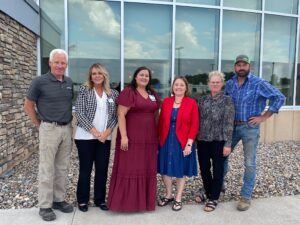
Attorney General Bird, known for her dedication to addressing critical issues affecting communities, spent the day engaging with healthcare professionals, touring the facility, and discussing key priorities related to rural healthcare access and substance abuse treatment. During a meeting with key hospital leaders, Attorney General Bird emphasized the vital role of rural healthcare in ensuring all Iowans have access to quality medical services.
“Rural communities are the backbone of our state, and it is crucial that we invest in and support healthcare facilities such as Manning Regional Healthcare Center,” Attorney General Bird stated.
The Attorney General toured the various departments meeting doctors, nurses, and other front-line staff to gain a firsthand understanding of the challenges they face in delivering healthcare services to rural populations.
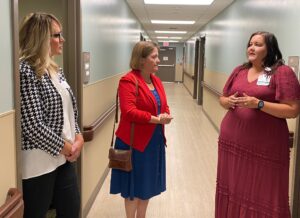 One of the key highlights of Attorney General Bird’s visit was her exploration of the Recovery Center at Manning Regional Healthcare Center, where she engaged in discussions with addiction treatment specialists, counselors, and individuals in recovery. She expressed her deep concern about the rising prevalence of substance abuse issues in rural areas and emphasized the importance of comprehensive treatment options.
One of the key highlights of Attorney General Bird’s visit was her exploration of the Recovery Center at Manning Regional Healthcare Center, where she engaged in discussions with addiction treatment specialists, counselors, and individuals in recovery. She expressed her deep concern about the rising prevalence of substance abuse issues in rural areas and emphasized the importance of comprehensive treatment options.
“The opioid epidemic has touched every corner of our state, and rural communities are particularly vulnerable. We must ensure that individuals battling substance abuse have access to effective and compassionate treatment close to home,” Attorney General Bird remarked.
In outlining her priorities related to rural healthcare, Attorney General Bird committed to working closely with healthcare providers and community leaders to address issues such as healthcare workforce shortages, infrastructure improvements, and access to mental health services. She also pledged to advocate for policies that support the expansion of substance abuse treatment programs and improve access to mental health resources in rural areas.
MRHC CEO, Linn Block, expressed gratitude for the Attorney General’s visit, stating, “We appreciate Attorney General Bird’s attention to the unique healthcare needs of rural communities. Her commitment to supporting initiatives that address substance abuse is particularly significant in our ongoing efforts to provide comprehensive care to our residents.”
As Attorney General Bird concluded her visit, she reiterated her dedication to collaborative efforts that bridge the gaps in rural healthcare and substance abuse treatment. “By working together, we can build stronger, healthier communities across Iowa,” she affirmed.
Attorney General Bird’s visit to Manning Regional Healthcare Center serves as a testament to her hands-on approach in addressing critical issues impacting the well-being of Iowans.
“We are thankful for the Attorney General’s visit to MRHC and appreciate her taking time to learn about the unique services we offer here as well as the challenges we face with regard to rural healthcare funding and staffing,” shared MRHC CEO, Linn Block.
Manning Regional Healthcare Center has recently become a popular site for politicians as the organization has been able to successfully manage rural healthcare challenges and continues to work hard every day to provide exceptional patient care. Read about other recent politicians visiting MRHC: U.S. Senator Grassley visited the hospital and Recovery Center. Presidential Candidate & North Dakota Governor Burgum
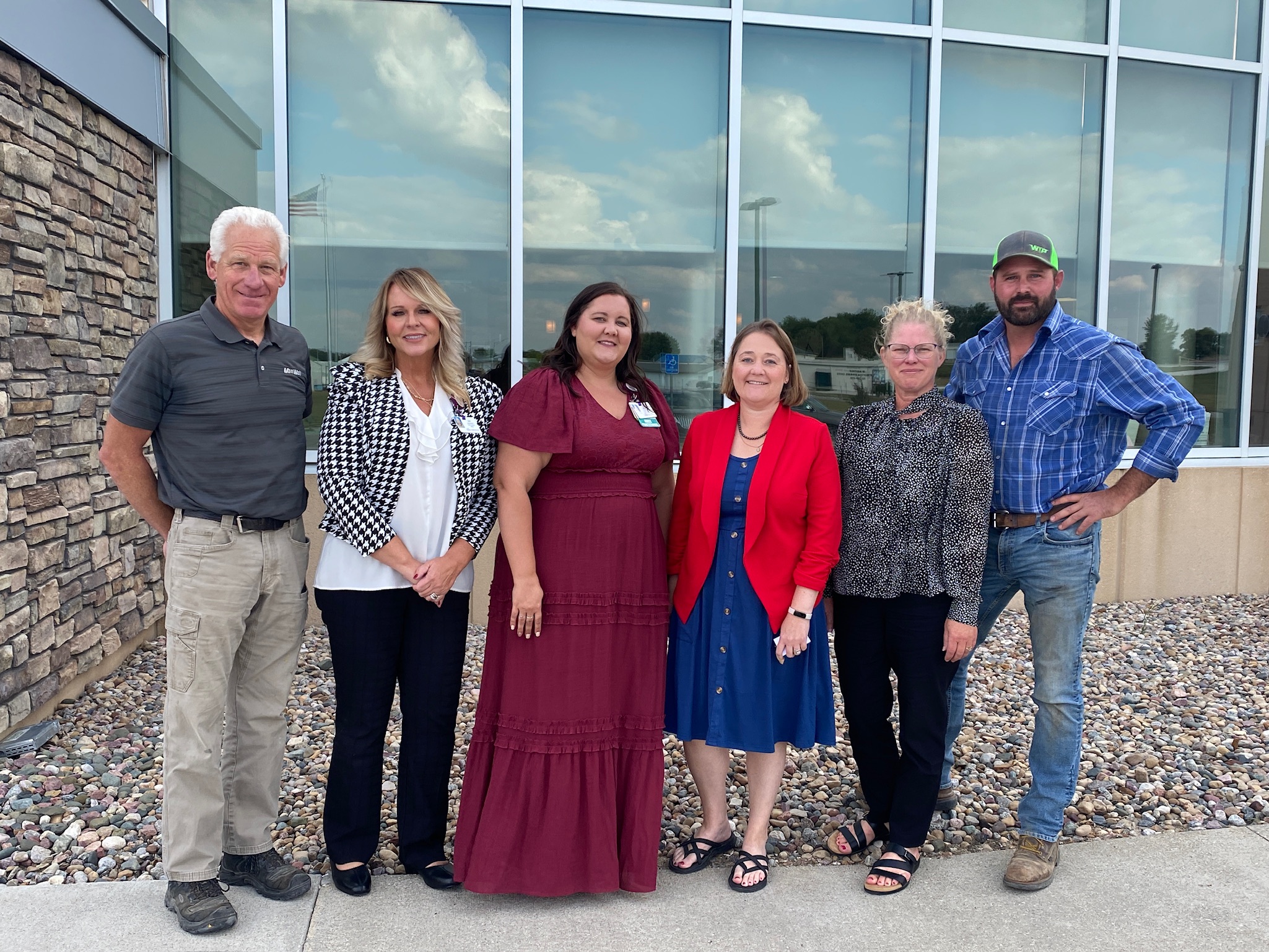
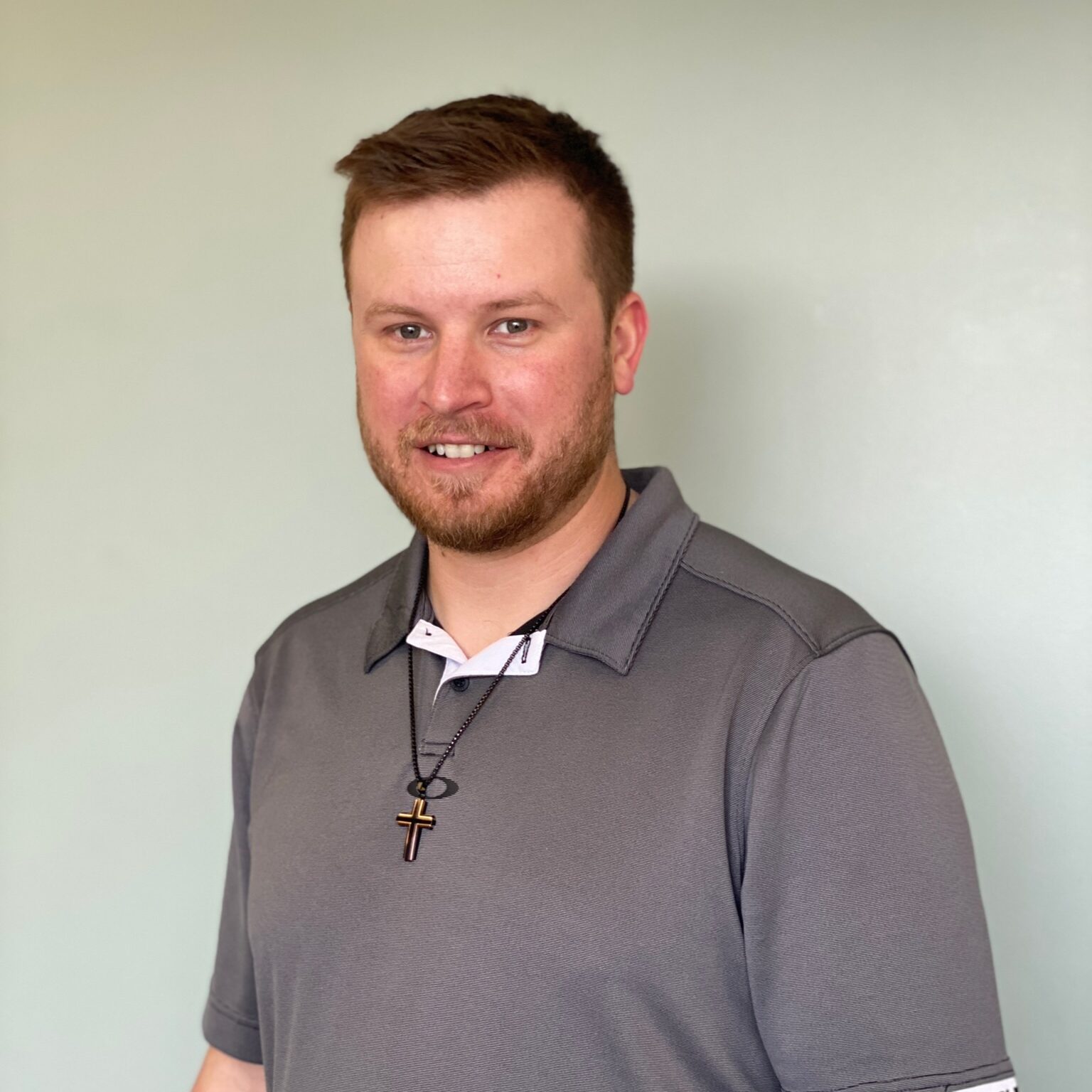
 “After working at the Recovery Center for a while it was clear to me that this is what I want to do for a living – help suffering addicts find hope in recovery,” explained Lytle. “Going through treatment here myself, I know the pain and struggles that our clients are going through. Being able to relate and help them through it is very rewarding and I want to continue doing that.”
“After working at the Recovery Center for a while it was clear to me that this is what I want to do for a living – help suffering addicts find hope in recovery,” explained Lytle. “Going through treatment here myself, I know the pain and struggles that our clients are going through. Being able to relate and help them through it is very rewarding and I want to continue doing that.”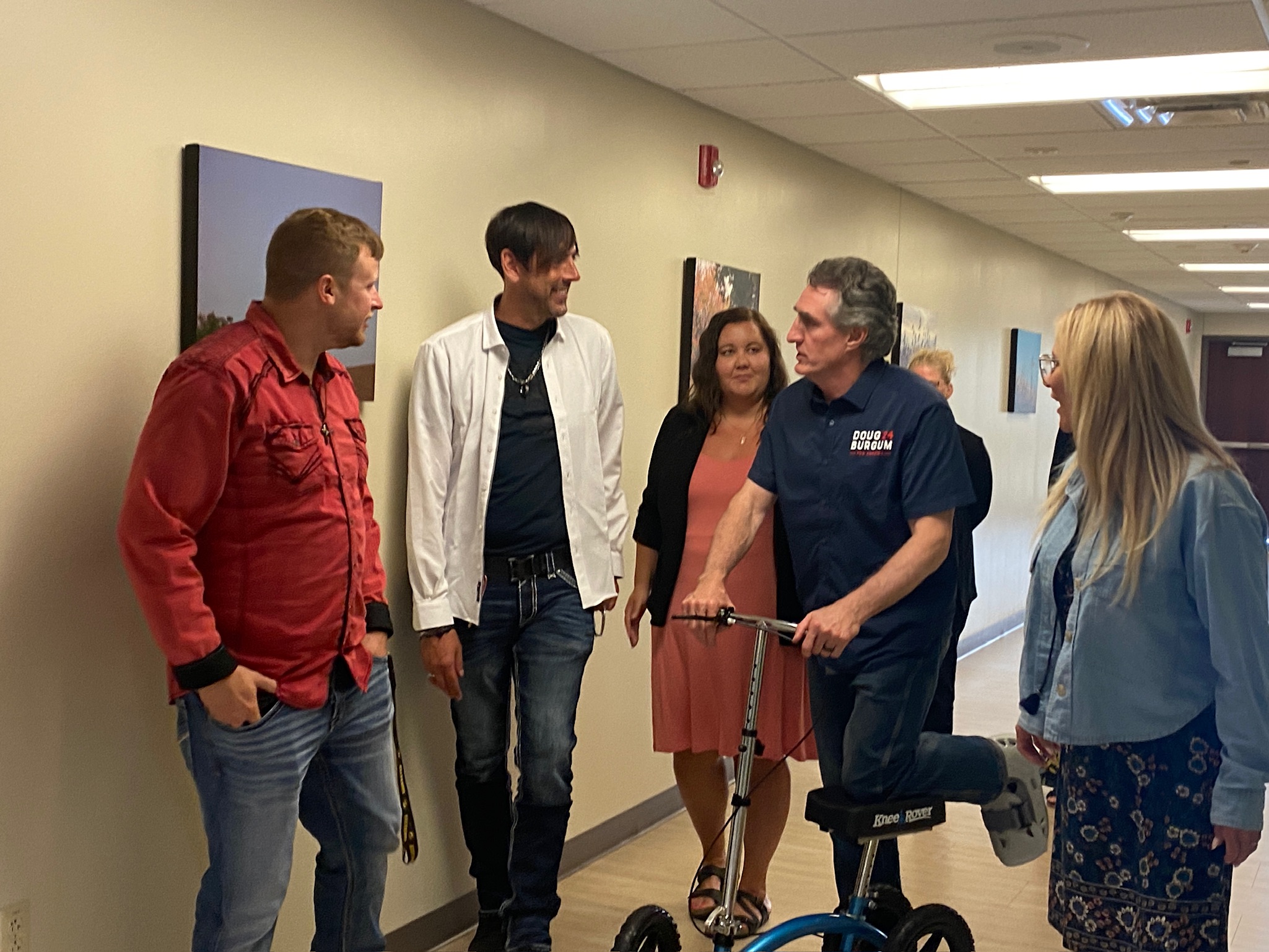
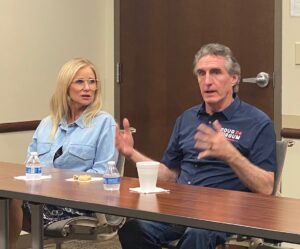 epublican presidential candidate and North Dakota Governor, Doug Burgum, along with his wife, Kathryn, visited Manning Regional Healthcare Center on Wednesday, September 6th to learn about the challenges and opportunities within rural healthcare.
epublican presidential candidate and North Dakota Governor, Doug Burgum, along with his wife, Kathryn, visited Manning Regional Healthcare Center on Wednesday, September 6th to learn about the challenges and opportunities within rural healthcare.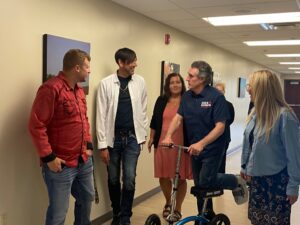 He continued, “These are sons and daughters [or] nieces and nephews of people who have been trapped in the disease of addiction and this is something we have to take on as a nation. There is a role for communities to play, but it starts right here like what is happening in Manning where great people [are] caring for each other and approaching this as the disease it is to fight against the disease of addiction.”
He continued, “These are sons and daughters [or] nieces and nephews of people who have been trapped in the disease of addiction and this is something we have to take on as a nation. There is a role for communities to play, but it starts right here like what is happening in Manning where great people [are] caring for each other and approaching this as the disease it is to fight against the disease of addiction.”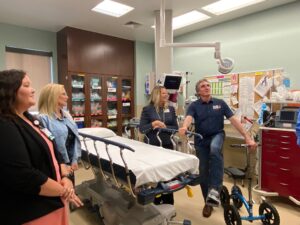 Additionally during the hospital tour, the Governor and first lady stopped in the emergency department and experienced a live-look at the Avel e-Care emergency response system. They were impressed with the quality of care that can be achieved in rural areas despite having limited staffing. They also acknowledged that additional technological advances are necessary in order for rural healthcare to succeed long-term.
Additionally during the hospital tour, the Governor and first lady stopped in the emergency department and experienced a live-look at the Avel e-Care emergency response system. They were impressed with the quality of care that can be achieved in rural areas despite having limited staffing. They also acknowledged that additional technological advances are necessary in order for rural healthcare to succeed long-term.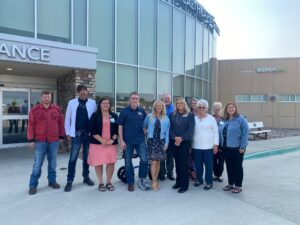 “We are thankful for the Governor and Kathryn’s visit to MRHC and appreciate them taking time to learn about the unique services we offer here, as well as the challenges we face with regard to rural healthcare funding and staffing,” shared MRHC CEO, Linn Block.
“We are thankful for the Governor and Kathryn’s visit to MRHC and appreciate them taking time to learn about the unique services we offer here, as well as the challenges we face with regard to rural healthcare funding and staffing,” shared MRHC CEO, Linn Block.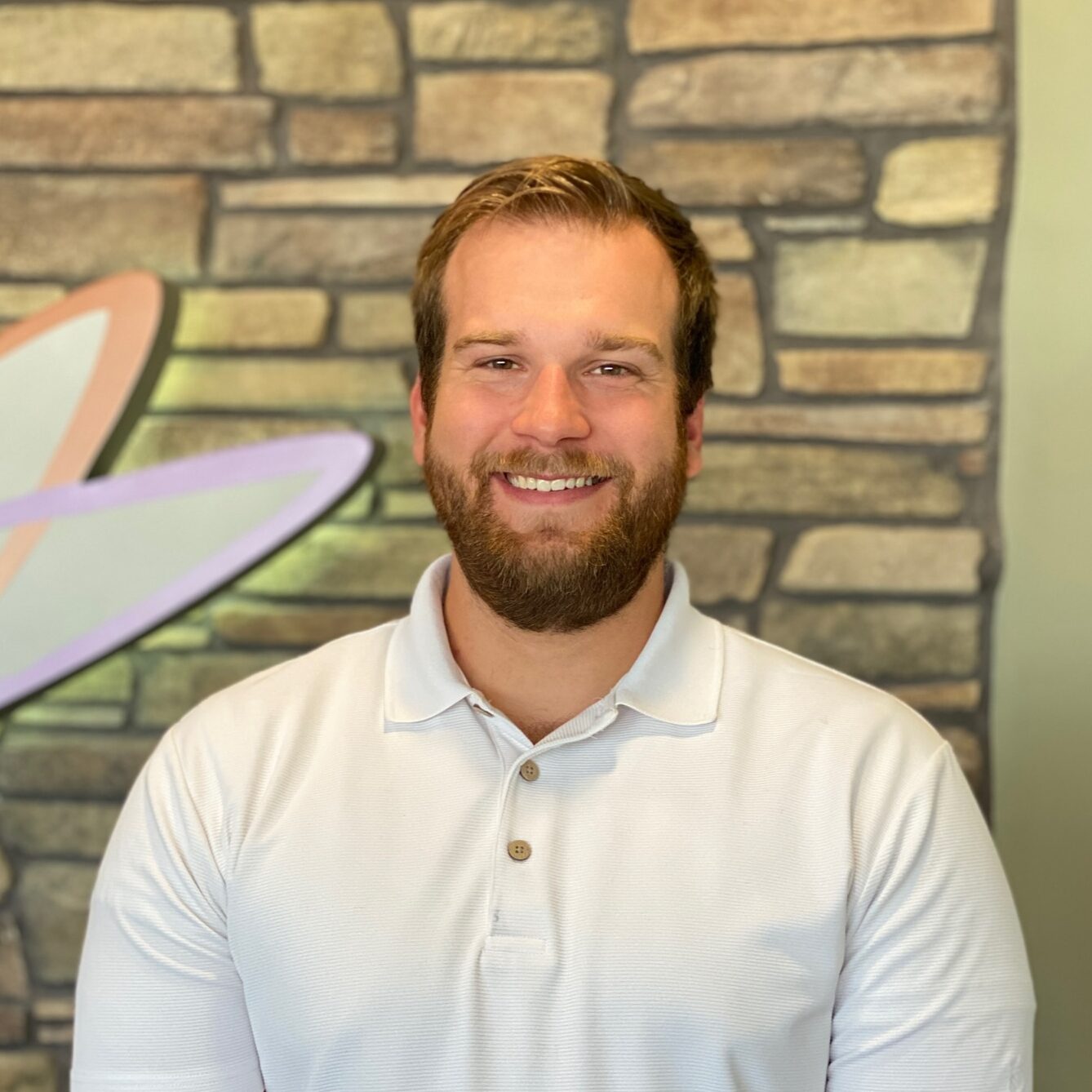
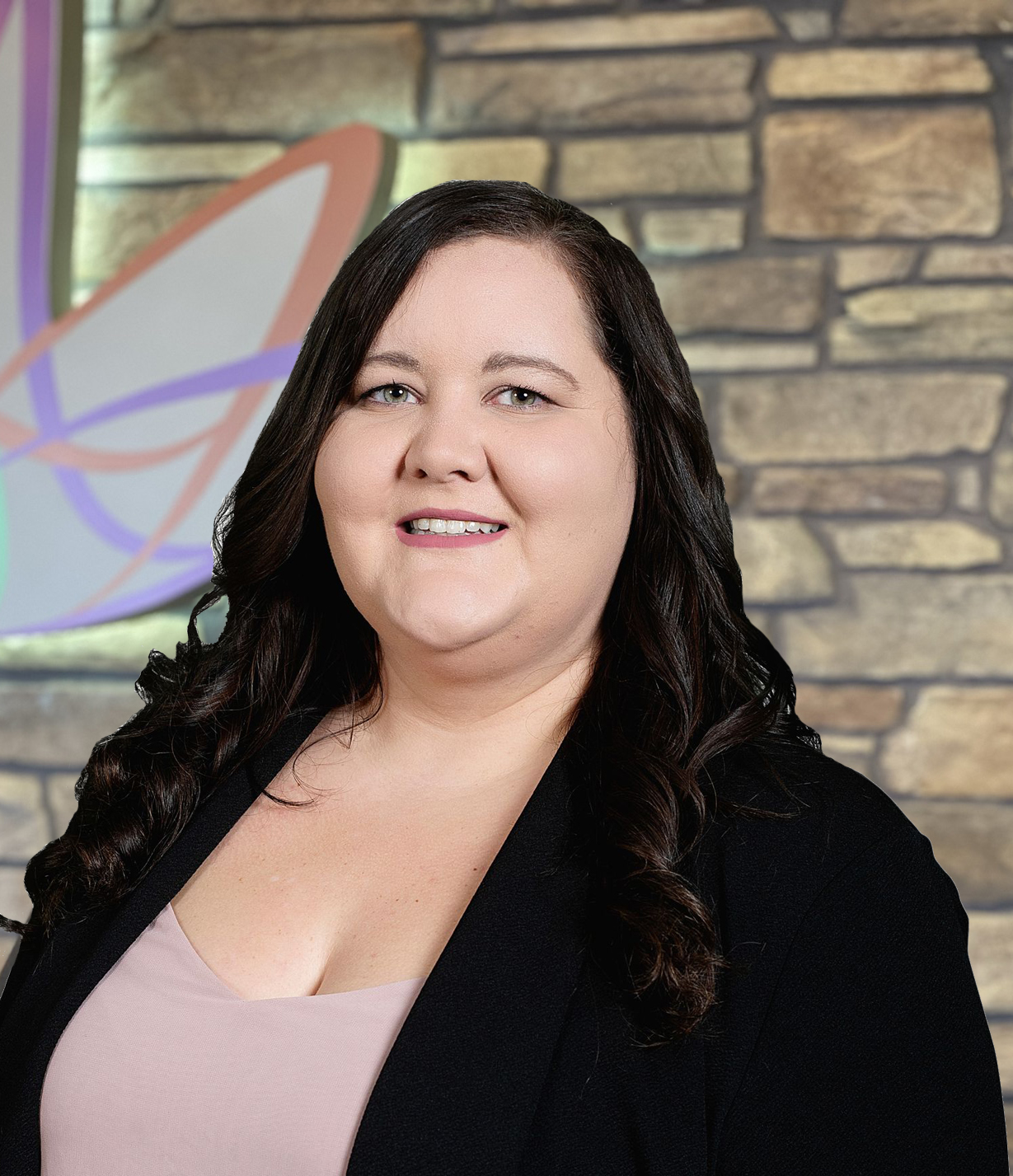
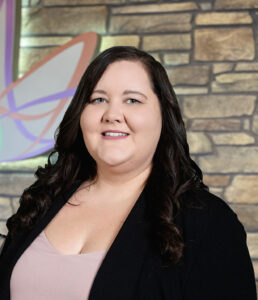 “The fundamental thing to understand is they have to come to their own decision about sobriety. You can’t make it for them,” advises Recovery Center Director,
“The fundamental thing to understand is they have to come to their own decision about sobriety. You can’t make it for them,” advises Recovery Center Director, 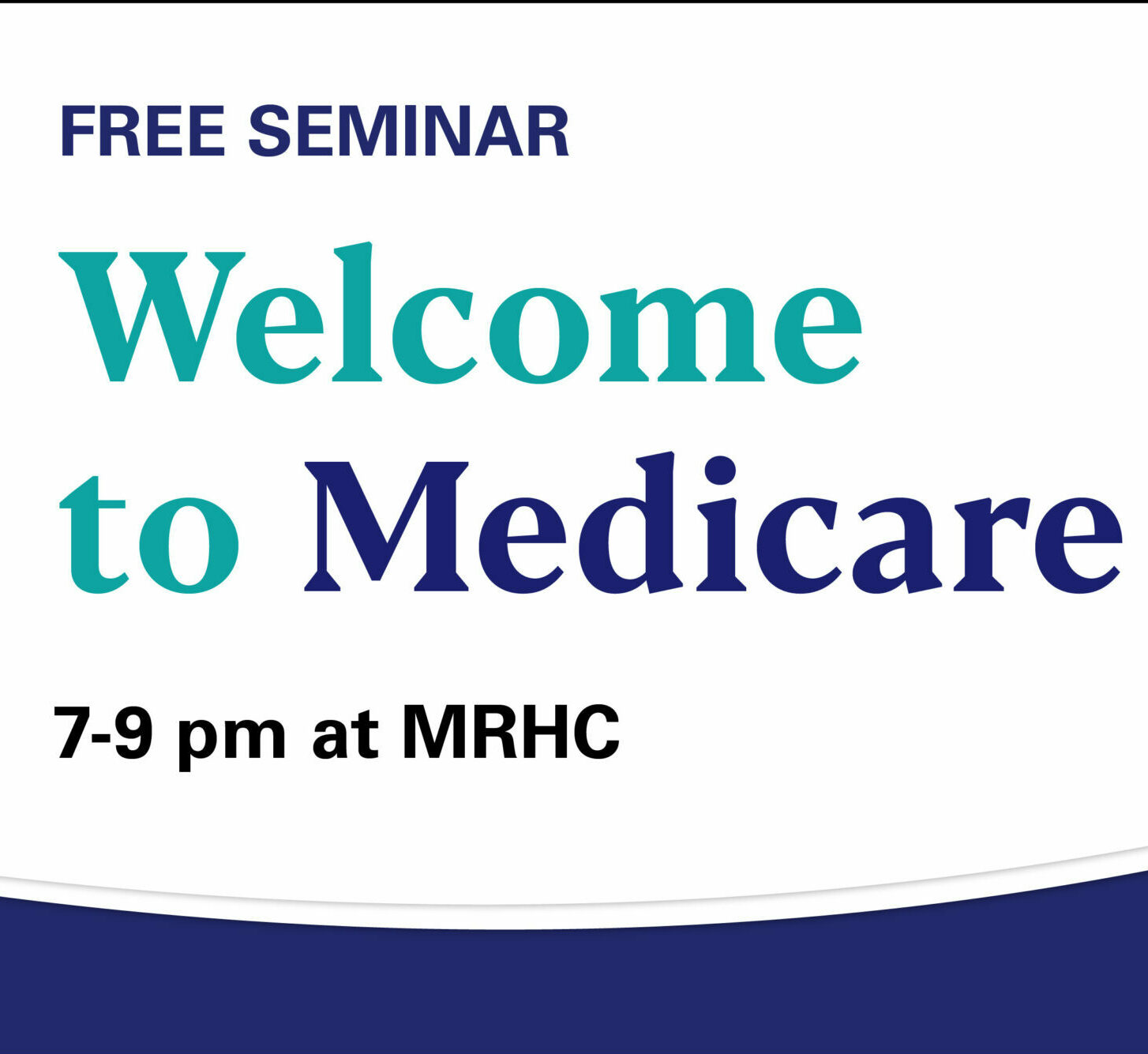
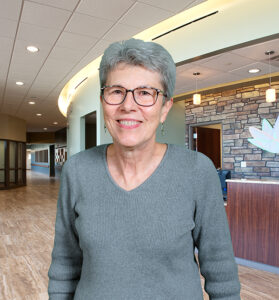 Even if you do not yet qualify for Medicare, MRHC’s volunteer SHIIP Counselor, Nancy Danner, recommends that “the best time to start getting information is before you actually need it, so I advise thinking about it at least 6-12 months before someone turns 65 years old.”
Even if you do not yet qualify for Medicare, MRHC’s volunteer SHIIP Counselor, Nancy Danner, recommends that “the best time to start getting information is before you actually need it, so I advise thinking about it at least 6-12 months before someone turns 65 years old.”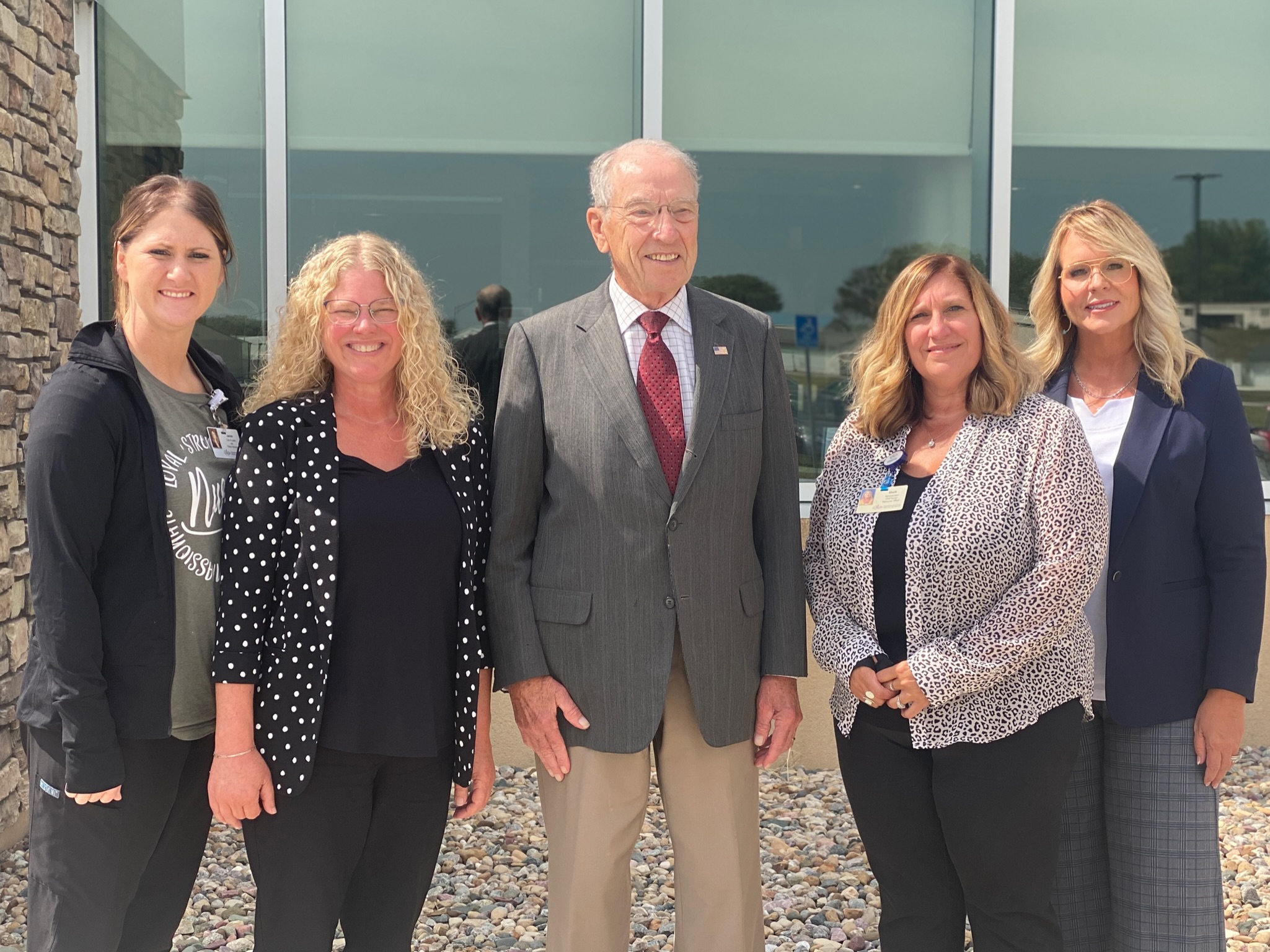
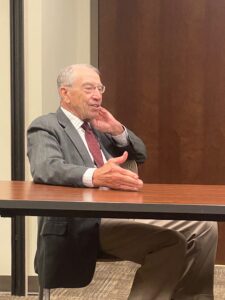 U.S. Sen. Chuck Grassley (R-Iowa) toured Manning Regional Healthcare Center and met with hospital administration and board leadership on Monday, August 28, as part of his annual 99 county tour. Also present on behalf of MercyOne were Bob Ritz, CEO; Mary Cownie, Chief of Staff; and Mike Trachta, Vice President of Network Affiliates.
U.S. Sen. Chuck Grassley (R-Iowa) toured Manning Regional Healthcare Center and met with hospital administration and board leadership on Monday, August 28, as part of his annual 99 county tour. Also present on behalf of MercyOne were Bob Ritz, CEO; Mary Cownie, Chief of Staff; and Mike Trachta, Vice President of Network Affiliates.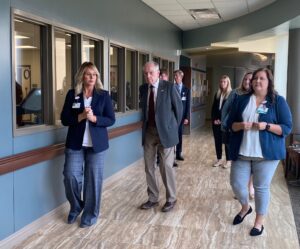
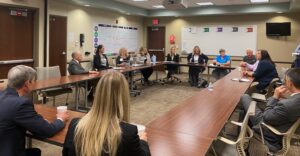
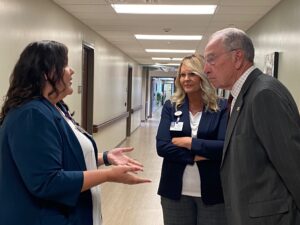
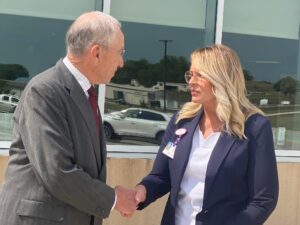
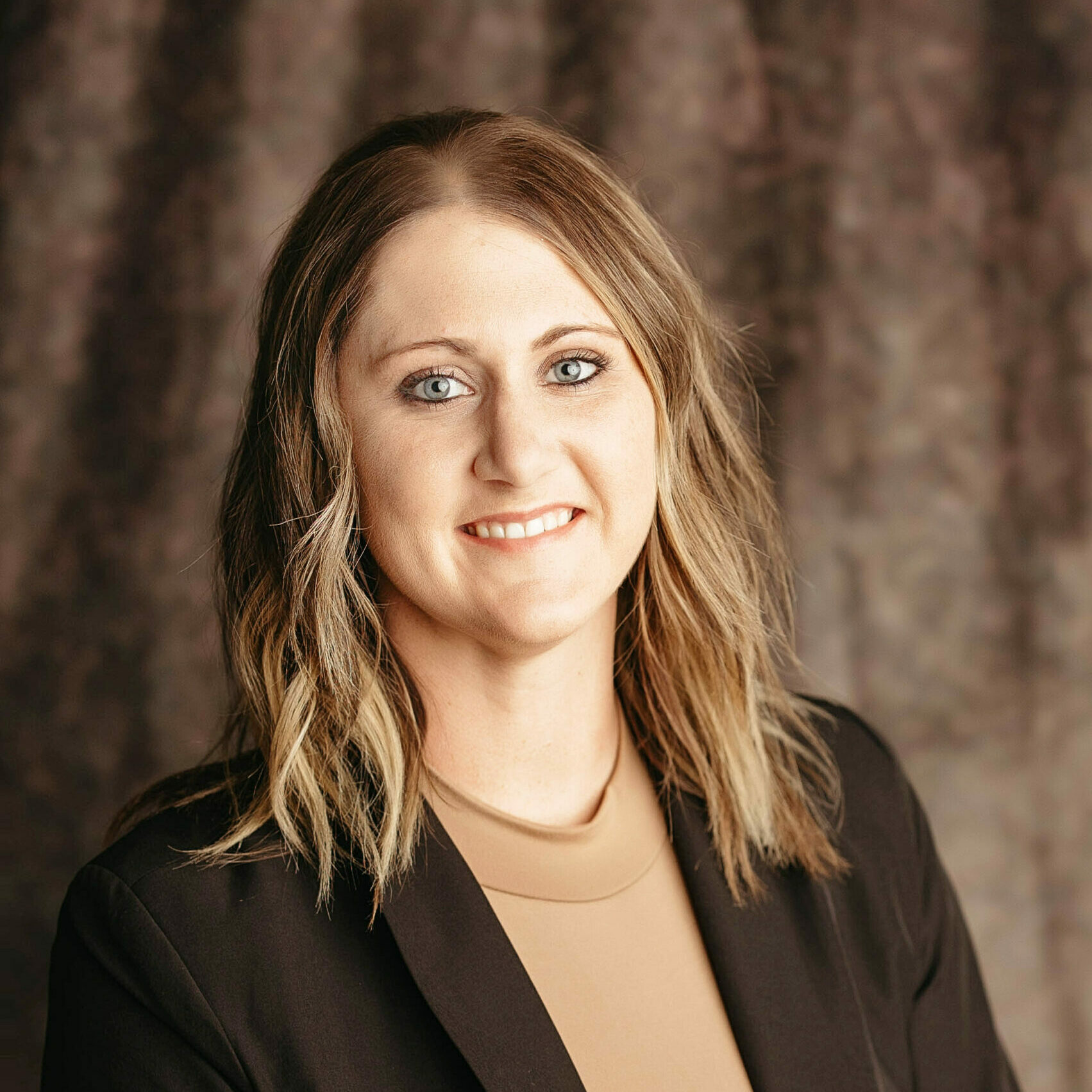
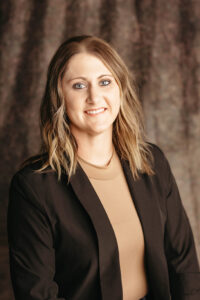 “Quality is one of our five key results and at the forefront of all our decisions. We want to provide the best quality care for each patient encounter,” shared Linn Block, CEO of MRHC and Blackwell’s mentor throughout her MBA process. “Jackie’s prior experience as a nurse combined with what she’s learned through her MBA program has provided her with the tools we need for this key role.”
“Quality is one of our five key results and at the forefront of all our decisions. We want to provide the best quality care for each patient encounter,” shared Linn Block, CEO of MRHC and Blackwell’s mentor throughout her MBA process. “Jackie’s prior experience as a nurse combined with what she’s learned through her MBA program has provided her with the tools we need for this key role.” “Linn Block encouraged me to pursue my career goals and was my mentor throughout the MBA program. My career has always meant a lot to me, and we were raised to be hardworking children,” shared Blackwell. “I told Linn my goals and she was supportive of them and helped get me to where I am today. All of the senior team members played a part in this process, and I learned a lot from each of their management styles.”
“Linn Block encouraged me to pursue my career goals and was my mentor throughout the MBA program. My career has always meant a lot to me, and we were raised to be hardworking children,” shared Blackwell. “I told Linn my goals and she was supportive of them and helped get me to where I am today. All of the senior team members played a part in this process, and I learned a lot from each of their management styles.”